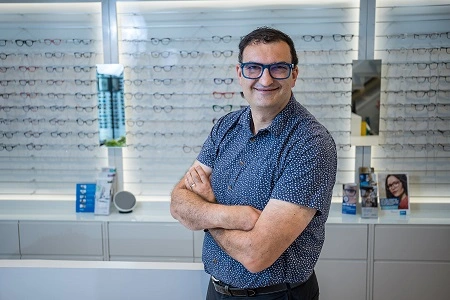Exploring the Critical Link Between Obesity and Eye Wellness
In discussions about health challenges, we often hear about serious concerns like diabetes, cardiovascular diseases, and joint pain. However, a crucial aspect that frequently goes unnoticed is eye health. Just as the heart and kidneys are vital organs, your eyes also require proper care and attention. Their health is significantly dependent on a well-functioning vascular system, which supplies the necessary nutrients and oxygen. When this vascular system suffers, it can result in detrimental effects on your vision. Therefore, prioritizing eye health is essential not only for maintaining visual acuity but also as a reflection of your overall health status, since the condition of your eyes can indicate broader health issues that may be developing within your body.
At Eyes By Design, we regularly observe how changes in systemic health are mirrored in the eyes of our patients. Vision problems seldom arise in isolation; instead, they often signal underlying health conditions that require prompt attention and an active management approach. Understanding the vital connection between your overall health and visual clarity empowers you to take decisive steps towards improving both your health and vision.

Understanding the Complex Relationship Between Overall Health and Eye Functionality
Your eyes may be small, but they are remarkably vascular organs that require a constant supply of oxygen and essential nutrients to function optimally. Individuals defined as overweight or obese frequently undergo metabolic and inflammatory changes that can severely impact these delicate eye tissues. Such disruptions can lead to various eye health complications that often go unnoticed until serious damage has occurred, resulting in irreversible consequences for vision.
It is crucial to understand that the effects of these health changes do not always present immediately. Often, they develop gradually and can remain hidden until your vision starts to decline. This scenario underscores the importance of regular eye examinations and being mindful of how your overall health directly influences your vision. Consistent check-ups can help spot potential issues before they evolve into severe conditions requiring extensive treatment.
Identifying Eye Conditions Linked to Obesity and Their Implications
Diabetic Retinopathy
Being overweight significantly raises the risk of developing type 2 diabetes, which can lead to elevated blood sugar levels that harm the tiny blood vessels in the retina, resulting in a condition known as diabetic retinopathy. This condition is among the leading causes of vision loss in working-age adults and can progress silently without noticeable symptoms. Consequently, regular eye exams are crucial for anyone managing diabetes or those at risk of developing this severe condition, as early detection can prevent significant vision loss.
Glaucoma
Glaucoma is marked by elevated intraocular pressure that can damage the optic nerve. Although this condition can affect anyone, studies indicate a link between obesity and increased intraocular pressure. This connection may relate to changes in fluid dynamics within the eye or variations in blood circulation. Often, glaucoma remains symptomless in its early stages, potentially leading to irreversible vision loss if not diagnosed and treated promptly.
Age-Related Macular Degeneration
The macula, an essential part of the retina responsible for sharp central vision, can be adversely affected by obesity. Some research suggests that being overweight may hasten the progression of macular degeneration due to increased inflammation and oxidative stress. This degeneration can hinder fundamental daily activities like reading, recognizing faces, and driving, all of which are crucial for maintaining independence.
Cataracts
Although aging is typically the primary cause of cataracts, individuals who are obese often face a higher risk of developing them earlier than expected. Factors like inflammation and insulin resistance can lead to changes in the lens of the eye. While cataracts can be effectively treated through surgical procedures, early detection is vital to ensure the best possible outcomes, preserving vision over time.
Investigating the Relationship Between Sleep Apnoea and Eye Conditions
Obesity is widely recognized as a significant risk factor for sleep apnoea, a serious condition that can drastically reduce oxygen flow during sleep, negatively affecting overall sleep quality. Untreated sleep apnoea is associated with various eye conditions, including:
- Floppy Eyelid Syndrome
- Glaucoma
- Non-arteritic Anterior Ischaemic Optic Neuropathy
Additionally, sleep apnoea can exacerbate the symptoms of dry eye, particularly for those utilizing CPAP machines. If the mask has leaks or directs airflow towards the eyes, moisture levels on the ocular surface may decrease overnight, leading to discomfort upon waking and negatively impacting overall eye health.

Managing Dry Eye Symptoms and General Eye Discomfort Effectively
Many individuals facing obesity report experiencing increased instances of dry eye symptoms and eye strain. These issues may arise from hormonal changes, systemic inflammation, or even the medications prescribed to manage related health conditions. Although these symptoms might not always appear severe, their influence on quality of life can be significant, necessitating a comprehensive assessment and effective management strategies to alleviate discomfort.
Essential Strategies for Enhancing Your Vision and Eye Health
Prioritize Regular Eye Examinations for Optimal Eye Health
For individuals managing high blood pressure, diabetes, or other chronic conditions, frequent eye exams are not merely a recommendation; they are vital for maintaining eye health. At Eyes By Design, we conduct thorough assessments that go beyond just issuing a prescription; we perform detailed examinations of the retina, optic nerve, and the overall vascular health of your eyes to identify any potential issues early on.
Improve Your Diet for Enhanced Eye Health
Adopting a balanced diet rich in leafy greens, vibrant vegetables, healthy fats, and whole grains can significantly improve both your metabolic and ocular health. Nutrients like lutein, zeaxanthin, omega-3 fatty acids, vitamin E, and zinc are well-known for their protective roles against age-related vision changes and for supporting overall eye wellness.
Incorporate Regular Physical Activity for Improved Eye Health
Engaging in regular physical activity not only enhances blood circulation but also reduces systemic inflammation and helps regulate blood sugar levels. Even small amounts of daily movement can yield significant benefits for your vision, contributing to enhanced overall health and vitality.
Proactively Manage Systemic Risk Factors for Eye Health
Maintaining healthy levels of blood sugar, blood pressure, and cholesterol is essential for slowing the progression of obesity-related eye diseases and significantly lowering the risk of vision loss. Taking proactive measures to address these factors is crucial for preserving your eye health and improving your quality of life.
Recognize the Value of Your Vision Health as a Core Component of Wellbeing
Your eye health is integral to your overall wellbeing. Many vision-related changes can occur subtly and without clear warning signs. By taking a proactive approach to eye care and health, you can realize significant improvements, ensuring that any necessary early detection and intervention occur when required.

Your Eyes Reflect Your Overall Health—Partner with Us to Protect Them Throughout Your Life
If you are managing chronic health conditions or have observed changes in your vision, Eyes By Design is here to assist you. Our approach is compassionate and non-judgmental; we offer professional care with a genuine commitment to helping you achieve lasting clarity in your vision. Prioritizing your eye health is essential, and we are dedicated to being an integral part of your health journey.
Explore Related Topics for Comprehensive Understanding
If you are considering options such as GLP-1 medications in your weight management journey, understanding their potential effects on your vision is crucial. We have thoroughly investigated the ocular implications of Ozempic in our detailed article: Ozempic and Vision Health Implications.
This article is designed to enhance your understanding of various eye health topics.
It should not replace professional advice, diagnosis, or treatment.
Always consult your healthcare provider before implementing this information into your health regimen.

Dr Nicholas Altuneg
For over two decades, my passion has been dedicated to empowering individuals of all ages to enrich their lives through improved vision. At Eyes By Design, we believe that vision is more than just clarity or the ability to read fine print; it shapes your perceptions and reactions throughout every moment of your daily life.
Read more about Dr Nick
The Article: Obesity’s Impact on Eye Health: What You Need to Know first appeared on https://writebuff.com
The Article Obesity’s Effect on Eye Health: Essential Insights Was Found On https://limitsofstrategy.com

